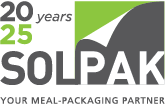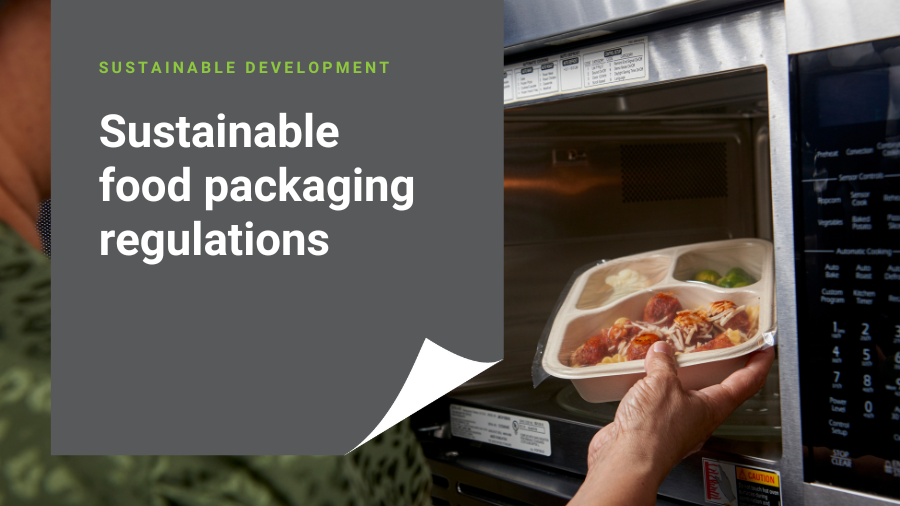Sustainability and food safety have become top priorities in the food industry. Businesses—including caterers, institutions, and food manufacturers —must ensure that their packaging complies with the latest regulations, particularly those related to Extended Producer Responsibility (EPR). EPR is a policy approach that holds producers financially accountable for managing the end-of-life disposal of their products, promoting efficient recycling programs and contributing to a circular economy.
Evolving Standards
Regulations are continuously evolving to reduce environmental impact while ensuring food safety. Companies that swiftly adapt to these changes not only achieve better compliance but also gain a significant competitive advantage.
Overview of Laws and Government Incentives
Canada is ramping up efforts to promote more sustainable packaging. In addition to federal guidelines, each province is implementing its own regulations to accelerate the transition to recyclable and compostable solutions.
1. Federal Regulations:
- Phase-out of single-use plastics: The Canadian government has banned certain single-use plastic items, including shopping bags, cutlery, and some food containers.
- Encouragement of compostable and recyclable materials: New standards, such as ASTM D6868, set guidelines for using environmentally friendly materials.
2. Provincial Regulations:
- Québec: Aims to reduce single-use plastic packaging, containers, and bags by 50% by 2030. Furthermore, all ready-to-drink beverage containers made of plastic, ranging from 100 ml to 2 litres, will now be subject to a deposit system to improve their recovery and recycling.
- Ontario: A recycling system overhaul is standardizing accepted materials across the province, simplifying sorting and reintegration into the recycling stream.
- British Columbia: Regulations prohibit the distribution of various single-use plastic items, such as shopping bags and plastic cutlery, to encourage reusable and compostable alternatives.
- New Brunswick: The Green Packaging and Paper Products Plan imposes stricter obligations on producers, pushing for more sustainable packaging designs.
Since regulations vary by province and municipality, it is crucial to check with local authorities to ensure compliance with the latest requirements.
Essential Guide to Food Packaging Regulations
1. Restrictions on Single-Use Plastics
Canada is part of a global movement limiting single-use plastics in favor of compostable, recyclable, or reusable packaging.
2. Compostability and Recyclability Standards
To be accepted at composting or recycling facilities, packaging must meet strict criteria:
- ASTM D6868 certification for compostable packaging
- Compliance with provincial recycling standards
- Prevention of contaminants that could disrupt the recycling process
3. Food Safety and Compliance
Food packaging must offer optimal protection while meeting industry-specific health and safety requirements:
- Resistance to extreme temperatures for heating and freezing
- Free from harmful substances (BPA, phthalates, etc.)
- Airtight seals to prevent cross-contamination
Why Choose Solpak?
Solpak supports food businesses by providing packaging solutions that comply with new regulations while optimizing environmental impact.
- Compostable fiber-based packaging that meets regulatory standards
- Heat-sealed packaging solutions that ensure food safety
- Expert guidance for a smooth transition to sustainable packaging
Take Action Today!
Complying with new regulations isn’t just an obligation—it’s an opportunity to innovate and enhance customer experience.
Request a free sample to discover how our sustainable packaging solutions can help you stay compliant and future-ready!
- La REP au Canada
- La Gazette du Canada, Partie I, volume 155, numéro 52: Règlement interdisant les plastiques à usage unique
- Le Québec passe à l’action: Phase 2 de l’élargissement de la consigne, c’est dans un mois!
- Consultations ECCC concernant les fruits et légumes et le nouvel outil d’emballage
- Préparez-vous! L’interdiction et la réglementation des plastiques progressent au Canada
- Circular Materials gère le programme de responsabilité élargie des producteurs d’emballages et de papier au Nouveau-Brunswick

